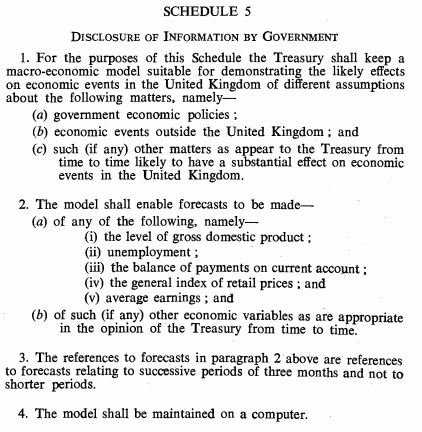The Spring Statement: a chance for new, green growth
"The model shall be maintained on a computer" - we've come a long way since the first Autumn Statement
Yesterday’s Autumn Statement was the Chancellor’s first and last.
The Government has announced that in future the Budget Statement will take place in Autumn and there will be a “Spring Statement” to respond to economic forecasts.
This marks the end of an old way of working. At WWT, we hope this will be a chance for a new kind of reporting by the Treasury.
In yesterday’s Autumn Statement, there was no mention of the condition of environmental assets or plans to invest in maintaining natural infrastructure, like wetlands that support so many essential services. There was no mention of the growing green economy, or plan to modernise fiscal structures with the core tenet of a sustainable economy, the polluter pays principle. Instead, there were plans for development and even tax breaks for fossil fuels.
Yet there are signs of change. The Government has set out its ambition to leave the environment in better condition for the next generation. It has set up the Natural Capital Committee to look at the value of our natural environment.
Today, in Parliament, there was a signal that these new approaches are beginning to influence policy. Andrea Leadsom announced £15million of new funding for Natural Flood Management. Government is beginning to recognise that our environment is a part of our critical natural infrastructure that supports our economy and our health. Action like Client Earth’s amazing victory on air pollution can only reinforce this message and the National Infrastructure Commission is rightly considering nature as part of the nation’s essential asset base.
In the next few months, WWT will be campaigning with our colleagues in the sector for a strong environment plan. We think that means setting clear targets for our natural world and clear reporting for progress in delivering them. This could be done in many ways; the recent report by the Environmental Audit Committee on sustainability in the Treasury proposed a “green check” on decisions to make sure they make environmental sense. The new Spring Statement would be an ideal opportunity to report on the condition of our natural economy, informed by the findings of experts like the Natural Capital Committee.
Clear reporting on our natural assets and their importance to the economy is a fiendishly difficult objective. Our natural world is so complex that it will take a huge effort to get right.
But we have come such a long way in the last generation. Consider this: the origin of the Autumn Statement was in the Industry Act 1975, which required the Government to report on the findings of a new macro-economic model. At that time, Parliament felt it was necessary to stipulate that “the model shall be maintained on a computer”.
These days, that requirement is redundant. The use of computers to contribute to economic forecasting is second nature. Let us hope, then, that the 25 Year Environment Plans sets a course for using the Spring Statement to recognise and report on the essential role of nature in our economy and prosperity.
That way, perhaps the era of Autumn Statements that coincided with a declining natural world can give way to Spring Statements that mark new, green growth and the restoration of a healthy environment: clean air, unpolluted water, thriving wildlife, underpinned by sustainable use and investment in our natural resources - an economy that really works for everyone.
Richard Benwell
Head of Government Affairs


